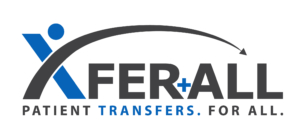The Joint Commission Releases Requirements for COVID Vaccination of Health Care Personnel
On February 16, 2022, The Joint Commission shared required documentation for COVID vaccination among health care staff. The Joint Commission will now be requiring health care facilities to provide the following documentation:
- Overall COVID vaccination rate of eligible staff
- A list of all staff, including positions/titles, including COVID vaccination status
- All policies regarding health care staff COVID vaccinations
- Policies for COVID vaccination exemptions
- Policies for COVID vaccination requirements
- Policies for mitigation of unvaccinated staff
- List of newly hired staff in last 60 days
New Requirements
- A process for tracking and securely documenting the COVID-19 vaccination status of all staff.
- A process for tracking and securely documenting the COVID-19 vaccination status of any staff who have obtained any booster doses as recommended by the CDC.
- A process by which staff may request an exemption from the staff COVID-19 vaccination requirements based on an applicable federal law.
- A process for tracking and securely documenting information provided by those staff who have requested, and for whom the organization has granted, an exemption from the staff COVID-19 vaccination requirements based on recognized clinical contraindications or applicable federal laws.
- Surveyors will not assess the appropriateness of clinical contraindications or religious exemptions.
- A process for ensuring that all documentation that confirms recognized clinical contraindications to COVID-19 vaccines and supports staff requests for medical exemptions from vaccination has been signed and dated by a licensed practitioner who is not the individual requesting the exemption, and who is acting within their respective scope of practice as defined by, and in accordance with, all applicable state and local laws. Such documentation contains:
- All information specifying which of the authorized COVID-19 vaccines are clinically contraindicated for the staff member to receive the recognized clinical reasons for the contraindications.
- A statement by the authenticating practitioner recommending that the staff member be exempted from the organization’s COVID-19 vaccination requirements for staff based on the recognized clinical contraindications.
- Surveyors only evaluate that the documentation is complete; they do not assess the appropriateness of clinical contraindications or religious exemptions.
Vaccination Rate Calculation
- Numerator Includes
- Pending religious or medical exemption (during first 30 days of implementation)
- Approved religious or medical exemption
- Persons having an approved CDC temporary delay for vaccination
- Persons with clinical contraindication to receiving COVID vaccine
- Staff who have received at least one dose of a vaccine should be placed in the numerator of the calculation during first 30 days
- Who Must be Vaccinated?
- Facility employees
- Licensed practitioners
- Students
- Trainees
- Volunteers
- Contracted staff
- Staff who perform duties offsite (e.g., home health) and to individuals who enter CMS regulated facilities (i.e., a physician with privileges in a hospital who is admitting and/or treating patients onsite)



